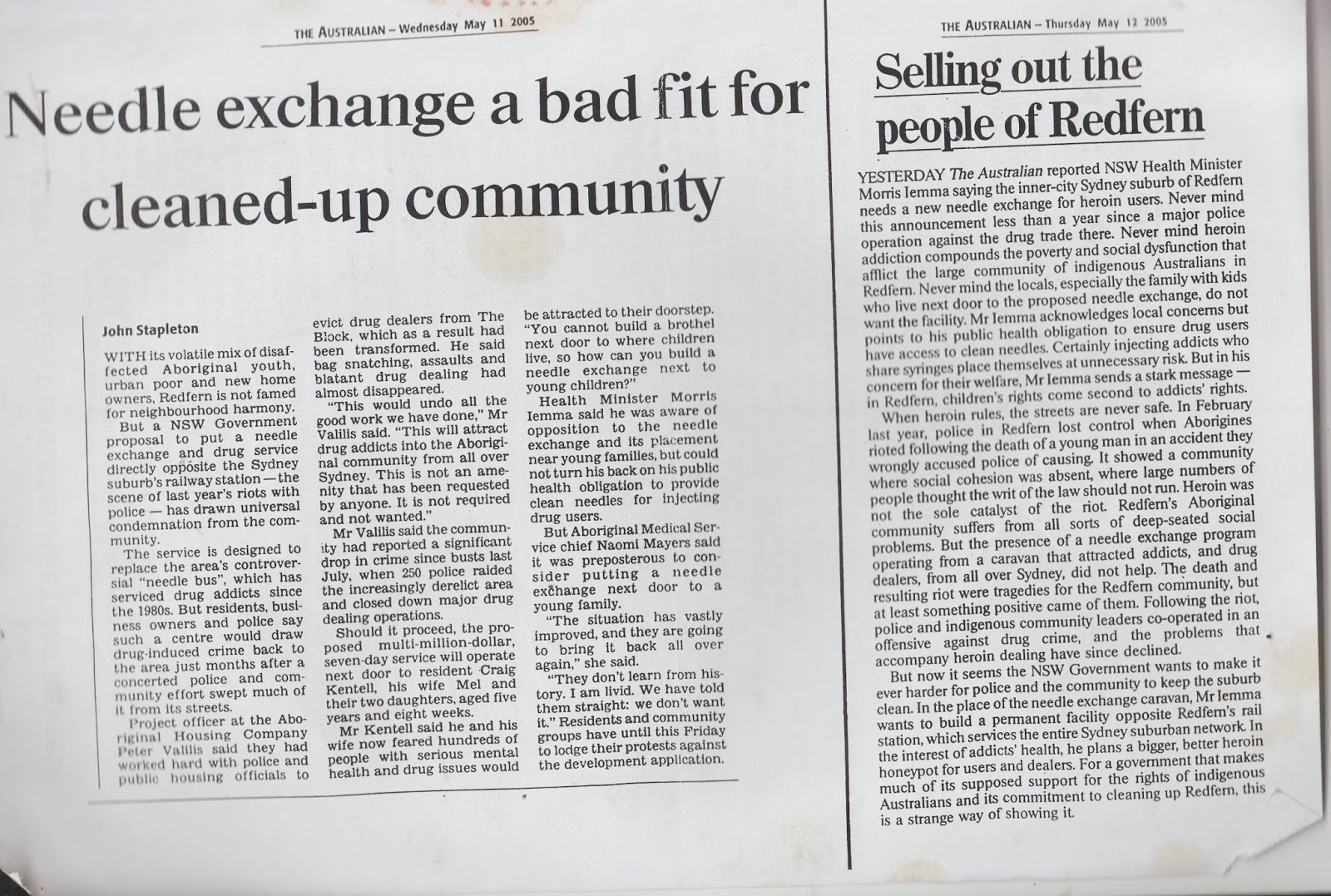Stapleton, John. The Australian; Canberra, A.C.T. [Canberra, A.C.T] 11 May 2005: 20.
Abstract
Project officer at the Aboriginal Housing Company Peter Valilis said they had worked hard with police and public housing officials to evict drug dealers from The Block, which as a result had been transformed. He said bag snatching, assaults and blatant drug dealing had almost disappeared.
“This would undo all the good work we have done,” Mr Valilis said. “This will attract drug addicts into the Aboriginal community from all over Sydney. This is not an amenity that has been requested by anyone. It is not required and not wanted.”
Mr [Craig Kentall] said he and his wife now feared hundreds of people with serious mental health and drug issues would be attracted to their doorstep. “You cannot build a brothel next door to where children live, so how can you build a needle exchange next to young children?”
Full Text
WITH its volatile mix of disaffected Aboriginal youth, urban poor and new home owners, Redfern is not famed for neighbourhood harmony.
But a NSW Government proposal to put a needle exchange and drug service directly opposite the Sydney suburb’s railway station — the scene of last year’s riots with police — has drawn universal condemnation from the community.
The service is designed to replace the area’s controversial “needle bus”, which has serviced drug addicts since the 1980s. But residents, business owners and police say such a centre would draw drug-induced crime back to the area just months after a concerted police and community effort swept much of it from its streets.
Project officer at the Aboriginal Housing Company Peter Valilis said they had worked hard with police and public housing officials to evict drug dealers from The Block, which as a result had been transformed. He said bag snatching, assaults and blatant drug dealing had almost disappeared.
“This would undo all the good work we have done,” Mr Valilis said. “This will attract drug addicts into the Aboriginal community from all over Sydney. This is not an amenity that has been requested by anyone. It is not required and not wanted.”
Mr Valilis said the community had reported a significant drop in crime since busts last July, when 250 police raided the increasingly derelict area and closed down major drug dealing operations.
Should it proceed, the proposed multi-million-dollar, seven-day service will operate next door to resident Craig Kentall, his wife Mel and their two daughters, aged five years and eight weeks.
Mr Kentall said he and his wife now feared hundreds of people with serious mental health and drug issues would be attracted to their doorstep. “You cannot build a brothel next door to where children live, so how can you build a needle exchange next to young children?”
Health Minister Morris Iemma said he was aware of opposition to the needle exchange and its placement near young families, but could not turn his back on his public health obligation to provide clean needles for injecting drug users.
But Aboriginal Medical Service chief Naomi Mayers said it was preposterous to consider putting a needle exchange next door to a young family.
“The situation has vastly improved, and they are going to bring it back all over again,” she said.
“They don’t learn from history. I am livid. We have told them straight: we don’t want it.” Residents and community groups have until this Friday to lodge their protests against the development application.

